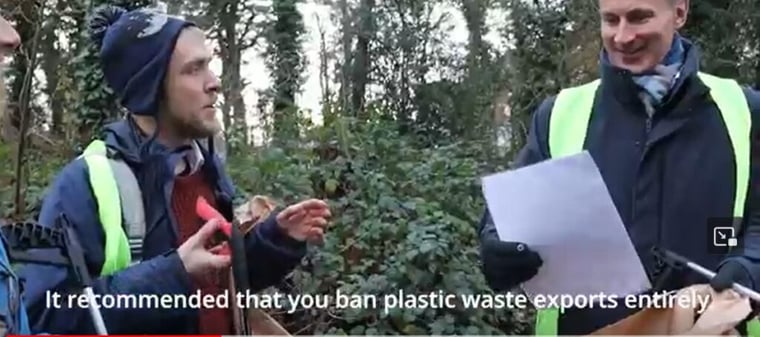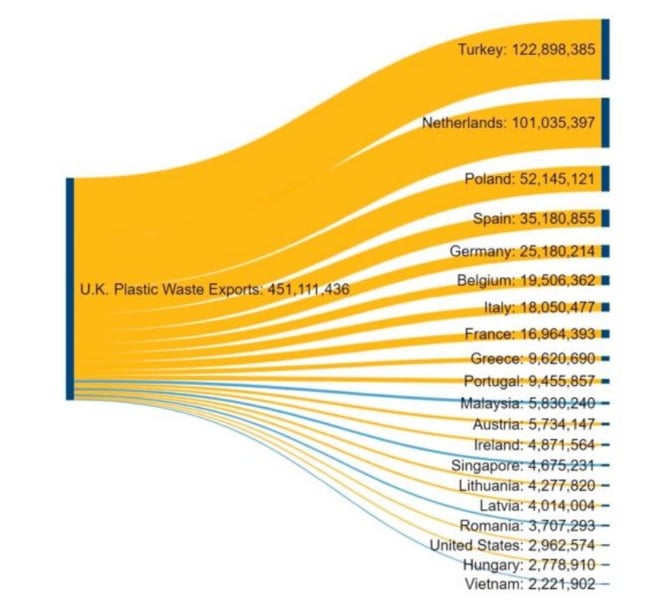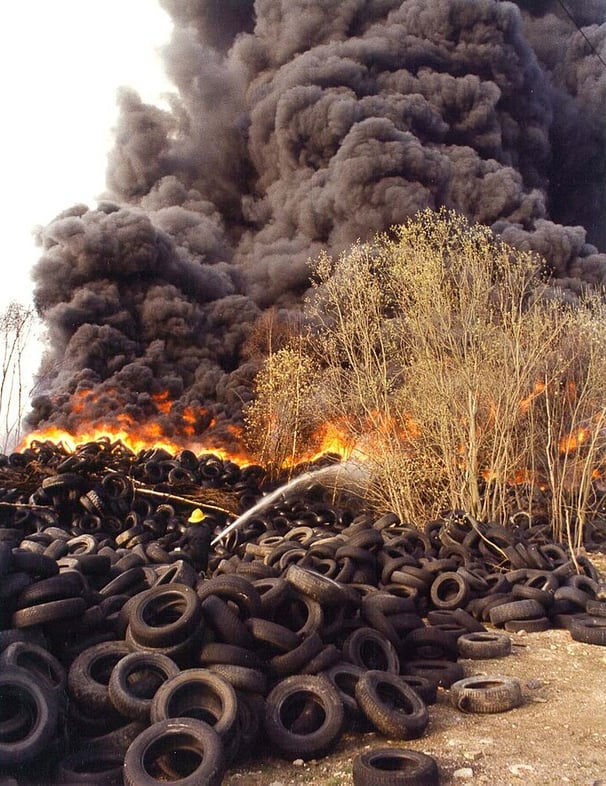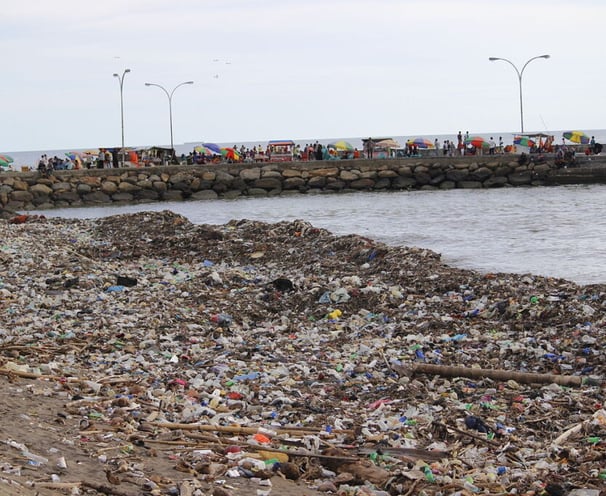What is Waste Colonialism?
This phrase was first used at the 1989 UNEP Basel Convention.
It is the domination of one country by another, in which the richer country disposes of or dumps its waste using the poorer country’s land and resources.
It is central to our conception of a fair process for managing our waste.


We gave Jeremy Hunt, then Chancellor, a copy of the Skidmore report which recommends banning UK waste exports. His government commissioned and ignored it.
What happens to UK waste?
Over 60% of our plastic waste is exported abroad. And that’s a lot – we produce up to 2.5m tonnes of plastic packaging waste a year.
But this is just packaging waste. Household waste, including non-plastics, is circa 27m tonnes per annum, and commercial and industrial waste is upward of 30m tonnes per annum.
In 2019 the UK had a missing 900,000 tonnes of plastic packaging, unaccounted for at end of life. This is presumably mismanaged, criminally or recklessly, and then lost to waste trafficking (illegally selling on waste), or in the environment.
Calls to ban plastic waste exports, including in the government’s own Skidmore report in 2023, and from Greenpeace, have not been agreed to by the government.
Exports to Turkey
Much of the waste the UK can’t manage goes to Turkey.
Polyethylene makes up 94% of the plastic waste which the UK exports to Turkey and 74% of all plastic waste Turkey receives.
A Greenpeace investigation has revealed that over 50% of recycling sent to Turkey cannot be recycled. It found waste being dumped and burned at the roadside.




Source: Environmental Investigation Agency
What about the world's waste?
Much waste is is exported to southeast Asian countries and Turkey, where little is recycled. Mismanagement is estimated at 57% in Malaysia, and as much as 75% and 83% in Thailand and Indonesia respectively.
SE Asia is a hotspot for waste because it can be brought on international vessels returning from the West to China.


“There are eight billion tonnes of plastic in the world – to put that into context, it weighs more than every single person who has ever existed.”
It’s not just packaging
We use so many plastic products that have no good disposal method. Just one example of thousands is car tyres.
“Every month, thousands of tonnes of used tyres leave our ports on a passage to India. There they are baked in pyrolysis plants, to make a dirty industrial fuel. While some of these plants meet Indian regulations, hundreds – perhaps thousands – are pouring filth into the air, as officials look the other way. When tyre pyrolysis is done badly, it can produce a hideous mix of toxins: heavy metals, benzene, dioxins, furans and other persistent organic chemicals, some of which are highly carcinogenic. Videos of tyre pyrolysis in India show black smoke leaking from the baking chamber, and workers in t-shirts, without masks or any other protective equipment, cleaning tarry residues out of the pipes and flasks.”
If tyres aren’t pyrolized for cheap fuel or made into building materials or ground up for children’s playgrounds, they end up on huge dumps, often in the Middle East and Africa. These are huge fire risks and potential carbon bombs, as we have seen many times over the last half century.
Planetary and Health Consequences
As we have seen, there is a global trade in plastic waste. This involves both legal and illegal routes.
Whether waste is legally traded or trafficked, its direction of travel is away from richer countries including the UK towards poorer countries.
There, it is illegally dumped and burned. It is legally recycled, but this, too, increases microplastics and the toxicity of waterways.
With fewer resources for cleanups and to fight for the rights to clean environments, many people are now living in the permanent backwash of the developed world’s plastic waste.




